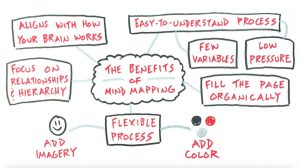7 Essential Note Taking Tips for Younger Students
. Posted in Parent-Child Advice, Study Tips - 0 Comments
When we listen to a lecture, we rely on our working memory to capture information. We must then process it and flag it for storage in long-term memory. Aptitude can sometimes be attributed to short-term memory capacity, which is why writing things down during note taking is a useful exercise that relieves the brain and creates an external record. It makes it easier for students to review at a later date and reinforce their memory of what they learned at school.
Here are some tips for younger students on learning how to take good notes.
1. Encouragement is key. Encourage kids by providing them with instruction on a variety of approaches to note taking. Give students a chance to select the style that works best for them.
2. Paraphrase information. Copying text can be helpful, but putting ideas into your own words to reinforce meaning is even more so. It alerts students to gaps in their understanding and can encourage use of new vocabulary words.
3. Separate the main ideas from the details. Structure content in a way that makes it easy to quickly identify gist and specific details during review. Highlighting, color coding, underlining, using different types/styles of bullet points, and using punctuation or all capital letters are effective ways to signal different kinds of information.
 4. Don’t worry about complete sentences. Notes are not formal pieces of writing; fragments and abbreviations are perfectly acceptable, as the emphasis should be on the ideas. Mind maps can be very effective methods of note taking.
4. Don’t worry about complete sentences. Notes are not formal pieces of writing; fragments and abbreviations are perfectly acceptable, as the emphasis should be on the ideas. Mind maps can be very effective methods of note taking.
5. Include diagrams and bullet points. Notes allow learners to structure text in innovative ways, so students should include diagrams and drawings where appropriate. Bullet points are also recommended over recording ideas in a block of text.
6. Keep notes organized in a binder or folder. It’s a good idea to write the date at the top of each set of notes, along with a title that describes the content. Teachers may have learners keep a note-taking journal.
7. Hand write when possible. The act of physically writing something down has been shown to aid in remembering information better. If you must take notes on a computer, however, make sure you can touch-type, or perhaps use word processing software.
Does your child struggle with note taking, homework, and/or organization? Boston Tutoring Services can help. Our top tutors are available to provide executive functioning help for your child. Click here to find out more about what we offer.
Allison Green
Boston Tutoring Services
